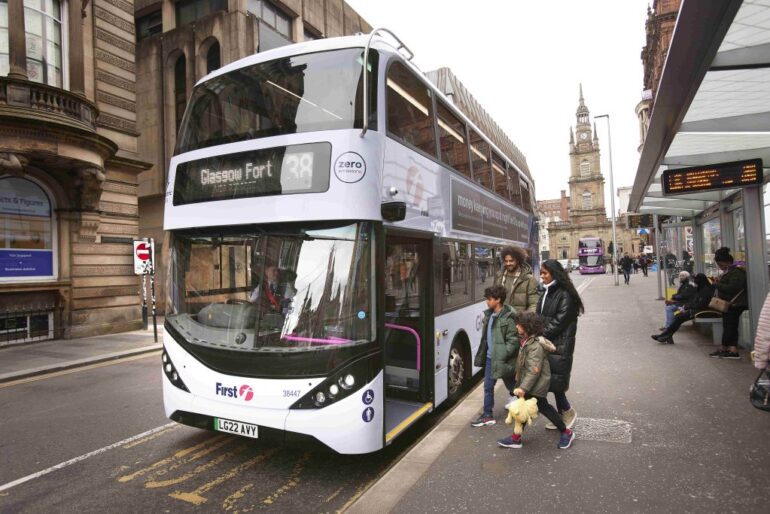TL;DR:
- First Bus is introducing AI-driven timetable updates in Glasgow for improved reliability and punctuality.
- AI planning software is used to create schedules that adapt to real-life conditions, including traffic congestion.
- Results from a pilot program in August and September showed up to a 16% improvement in punctuality and reliability.
- Local authorities’ investment in bus priority measures is seen as crucial for enhancing public transport efficiency.
- Changes will affect 14 services but aim to optimize fleet use without reducing the number of buses on the road.
- Customers are encouraged to use the First Bus app for real-time timetable and bus tracking information.
Main AI News:
In a bold move aimed at revolutionizing the Glasgow public transport landscape, First Bus is rolling out a groundbreaking series of service enhancements driven by cutting-edge artificial intelligence (AI) planning software. The primary objective? To elevate reliability and punctuality to new heights.
This strategic initiative represents a pivotal shift towards the seamless integration of technology and data, all meticulously designed to transform the passenger experience. Central to this transformation is the utilization of AI algorithms that craft timetables mirroring the dynamic nature of “real-life conditions.” In other words, these schedules take into account factors such as traffic congestion and the availability of resources.
First Bus’s innovative technology-driven approach has already yielded impressive results. A small-scale pilot project, conducted across selected Glasgow services during the months of August and September, showcased remarkable improvements in both punctuality and reliability, with gains of up to 16%.
Graeme Macfarlan, the astute Commercial Director for First Bus Scotland, articulated the significance of this endeavor. “In light of the escalating congestion witnessed in Glasgow in recent years, we recognized the paramount importance of constructing timetables that seamlessly adapt to the ever-evolving road conditions,” he asserts. “Our customers now have the assurance of precise arrival times for their buses.”
Moreover, these timetable adjustments empower First Bus to maximize the operational efficiency of its fleet, ensuring that as many commuters as possible are served effectively throughout the bustling city.
Macfarlan went on to underscore the pivotal role that local authorities play in addressing issues like congestion. “By investing in bus priority measures, we collectively contribute to an improved, more streamlined public transport service within the city,” he asserts confidently.
Scheduled to take effect from Sunday, December 10th, these transformative updates are set to impact a total of 14 services, including routes 7, 7A, 31, 38, 38A, 38B, 38C, 38E, 57, 57A, 75, 206, 208, and 226. These strategic modifications are poised to enhance service quality and optimize the utilization of the existing fleet, all while ensuring that the number of buses on the road remains unchanged.
Recognizing the need for real-time information, First Bus encourages its valued customers to rely on the First Bus app for the latest timetables and live bus tracking updates. They acknowledge that updating physical touchpoints at bus stops with the new schedules will be an endeavor of significant magnitude, given the scope of these transformative changes.
Conclusion:
First Bus’s AI-driven timetable revolution represents a significant step forward in the quest for improved public transport reliability and punctuality. The successful pilot results and the emphasis on adapting to real-time conditions highlight the potential for enhancing the overall market for public transportation services in Glasgow. Additionally, the call for local authorities to invest in bus priority measures underscores the collaborative efforts needed to create a more efficient and responsive public transport system.

